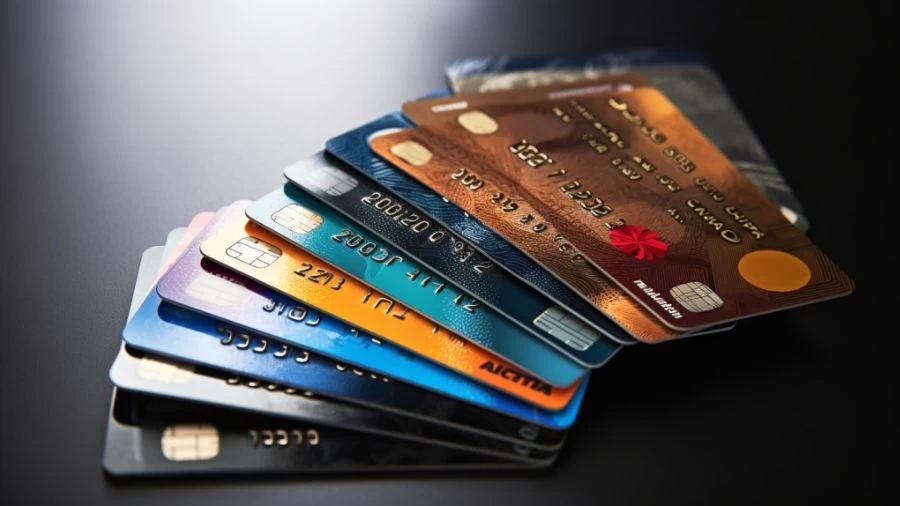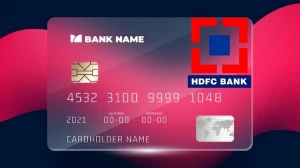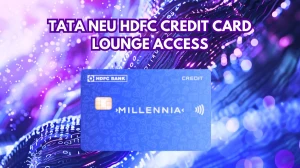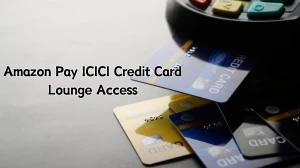
- Home »
- Credit Card »
- What Are the Different Types of Credit Cards and How Do Credit Cards Operate?
What Are the Different Types of Credit Cards and How Do Credit Cards Operate?
Credit cards come in various types, including rewards cards that offer benefits for purchases, balance transfer cards for consolidating debt, and cash back cards that provide a percentage of spending back to the cardholder.
Updated Nov 28, 2023
On This Page
What Are the Different Types of Credit Cards?
Navigating the expansive realm of credit cards can be overwhelming, but the key is to find the right fit for your needs. Among the myriad choices, rewards credit cards shine for everyday purchases, while travel credit cards, including co-branded airline and hotel cards, cater to frequent travelers.
Credit card beginners can benefit from secured or student credit cards, offering a pathway to build a credit score. Rather than delving into every card detail, understanding your qualifications and usage plans simplifies the selection process in the diverse landscape of credit cards.
With the multitude of credit card options available, determining the one that suits you best may seem challenging. However, by pinpointing the credit card type you qualify for and outlining your usage plans, the process of selecting a card aligned with your spending habits and lifestyle becomes clearer.
Business Credit Cards
Small Business Credit Cards are designed to help business owners separate their business and personal expenses, providing specialized tools and rewards programs. Whether it's a side gig, startup, or established operation, these cards usually require good to excellent credit, offering generous credit lines to assist during cash-flow challenges. They often allow business owners to issue employee cards with personalized spending limits.
Business cards come in various types, offering cash-back or travel rewards for specific business-related categories. Some provide 0% APR promotional periods, ideal for significant upcoming expenses or debt transfers. Annual fees range from $0 to higher amounts, depending on the card's benefits and perks.
Also Read>> Best Small Business Credit Card of November 2023
Balance Transfer Cards
Balance Transfer Credit Cards offer promotional APR periods, allowing users to transfer high-interest balances for more effective debt management. To qualify, a good to excellent credit score is usually required. These cards often come with a transfer fee, and it's essential to pay off the transferred balance within the promotional period to avoid the card's ongoing APR.
Cash Back Credit Cards
Cash Back Credit Cards provide a percentage of purchases back as cash rewards, either as a flat rate or with varying rates for different spending categories. These rewards can be applied as statement credits, disbursed as checks, or redeemed for gift cards. These cards are ideal for users seeking consistent discounts on purchases or those who spend significantly in specific categories, aiming to offset costs through the card's cash-back program.
Retail Credit Cards
Retail Credit Cards, whether co-branded with a card network or closed-loop, offer regular discounts for in-store or online purchases and often come with rewards programs. These cards, like the Target RedCard™ Mastercard or Capital One Walmart Rewards® Card, provide specific benefits tailored to the respective retailer, such as discounts, cash back, or rewards redeemable within their network.
While generally easier to qualify for, these cards may have low initial credit limits, higher-than-average APRs, and typically no annual fees.
Student Credit Cards
Student Credit Cards, designed as "starter credit cards," cater to individuals with limited credit history, making approval more accessible for young people. With most student credit cards having no annual fees and offering rewards or bonus perks for good grades, they provide an opportunity for students to build credit responsibly and cultivate positive financial habits.
Notable options include the Discover it® Student Cash Back, Deserve® EDU Mastercard for Students, Petal® 2 “Cash Back, No Fees” Visa® Credit Card, and Capital One Quicksilver Student Cash Rewards Credit Card.
Read Related >> Best College Student Credit Cards for November 2023
Secured Credit Cards
Secured credit cards, unlike unsecured ones, require a cash deposit upfront as collateral to secure a line of credit, typically equal to the deposited amount. For instance, with a $500 initial deposit, you could secure a $500 line of credit. While this collateral requirement may seem less favorable, secured credit cards are often the most accessible, making them an excellent choice for individuals looking to establish or rebuild credit.
Top secured credit card options include the Capital One Platinum Secured Credit Card, OpenSky® Secured Visa® Credit Card, and Discover it® Secured Credit Card with rewards.
Travel Credit Cards
Travel credit cards cater to individuals who frequently travel for business or leisure, providing specialized rewards such as flexible travel credits or transferable points to airline or hotel programs. Some cards focus on specific loyalty programs like frequent flyer or hotel rewards.
Luxury travel credit cards offer additional perks like airport lounge access, annual travel credits, and benefits for Global Entry or TSA PreCheck. These cards allow users to accumulate points and miles through everyday purchases, making the next trip more affordable without leaving town.
Read Related >> Best Travel Credit Cards of November 2023
What are the Pros and Cons of Using a Credit Card?
Credit cards offer both advantages and disadvantages, serving as a versatile financial tool when used responsibly. From the convenience of cashless transactions to potential pitfalls like interest charges, understanding the pros and cons is essential for informed financial decision-making. Here's a closer look at the benefits and drawbacks associated with credit cards.
Pros of Using a Credit Card
- Credit cards offer cashless transactions, but responsible use is crucial to avoid debt and interest charges.
- They provide detailed spending records, aiding budgeting and tax preparation.
- Credit cards allow immediate purchases before receiving a paycheck, with timely repayment avoiding high-interest costs.
- Flexibility to obtain cash, though at a potentially higher interest rate.
- Various discounts, cash back, and rewards align with spending habits.
- Responsible use contributes to a positive credit history, enhancing future borrowing opportunities.
- Assistance in disputing charges or returning defective products.
Cons of Using a Credit Card
- Easy use may lead to overspending, requiring discipline.
- Failure to pay the full balance incurs interest, increasing overall costs.
- Annual fees, cash advance fees, and high-interest rates may offset benefits.
- Regular statement reviews are essential to detect inaccuracies and unauthorized charges.
- Introductory low rates may be temporary, requiring careful consideration of long-term costs.
MarketsHost presents an all-encompassing exploration of Credit Cards, offering an exclusive gateway to the realm of smart financial management and secure transactions.
How Do Credit Cards Operate?
Credit cards operate by providing users with a pre-approved credit limit for making purchases, which can be paid back later. When a credit card is used, the cardholder's details are sent to the merchant's bank, and authorization is sought from the credit card network. The card issuer then verifies the information and either approves or declines the transaction.
Approved transactions result in the payment to the merchant, and the card's available credit is reduced. At the end of the billing cycle, a statement is issued, summarizing all transactions, balances, minimum payment due, and the payment due date. Understanding the credit card process is crucial for responsible usage.
What are Credit Card Fees?
Credit cards often come with a range of fees beyond the interest rate, such as balance transfer fees incurred when transferring balances to another card, typically a percentage of the amount transferred. Over-limit fees may apply if you exceed your card's limit, and late fees are charged for missed minimum payments by the due date.
It's essential to be aware that tardy payments may result in the revocation of any introductory rates previously offered by the card issuer. Understanding these fees is crucial for responsible credit card management.
How Can You Get a Credit Card if You Have No Credit History?
For individuals with no credit history, obtaining a credit card can be challenging. However, there are options to kickstart credit-building efforts. Secured credit cards, designed for those with limited credit experience, are a viable choice. Alternatively, student credit cards and retail store credit cards are accessible options.
These cards allow individuals to establish credit by making responsible transactions. Being credit invisible, or lacking a credit history, indicates that there's no record of debt management reported to major credit bureaus, making it essential to explore credit-building options for future financial endeavors.
What to Consider for a First-Time Credit Card?
For those contemplating their first credit card, several key considerations can guide the decision-making process. Firstly, check eligibility requirements, ensuring that, generally, applicants should be at least 18 years old. Assessing the type of credit card is crucial, taking into account interest rates, potential annual fees, and other charges. Utilizing tools like Capital One's credit card comparison can simplify the search based on credit requirements and rewards.
What Are the Different Types of Credit Cards - FAQs
1. What are rewards credit cards?
Rewards credit cards offer benefits like cash back or points for eligible purchases, providing incentives for cardholders.
2. How do balance transfer cards work?
Balance transfer cards allow you to move existing credit card balances to a new card with a lower introductory interest rate, helping save on interest payments.
3. What are cash back credit cards?
Cash back credit cards return a percentage of the purchase amount to the cardholder, providing a monetary incentive for using the card.
4. What are retail credit cards?
Retail credit cards are specific to certain stores, offering discounts or rewards when used for purchases at those particular retailers.
5. How do secured credit cards differ?
Secured credit cards require a cash deposit as collateral, making them accessible for individuals with limited or poor credit history.




